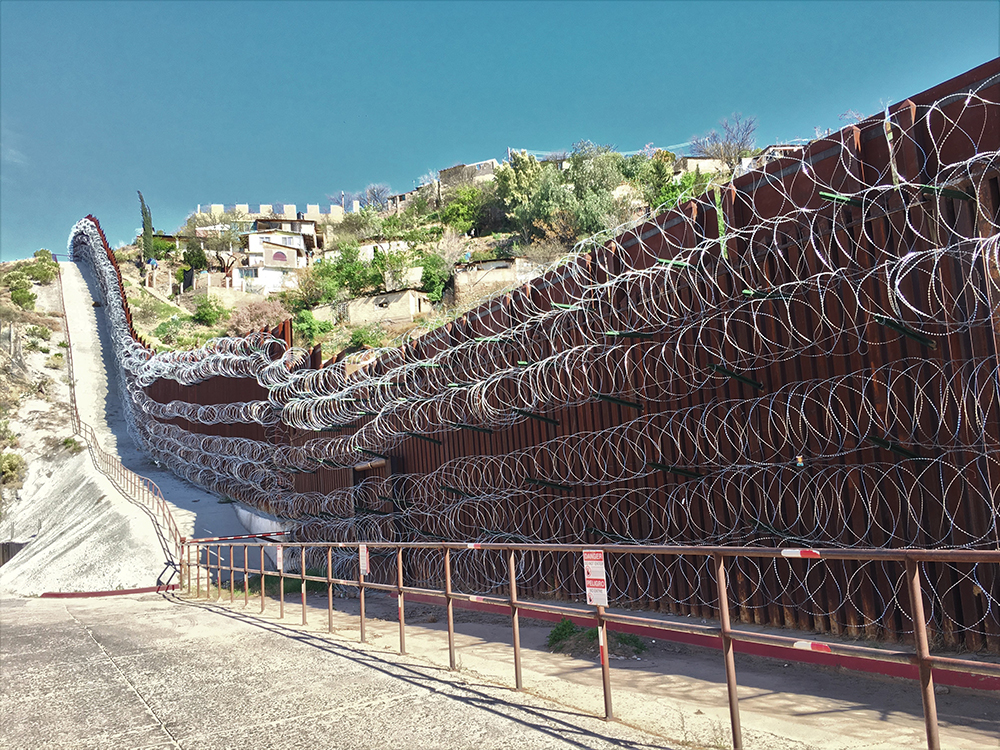
On Friday, the Supreme Court denied a motion to lift a stay it had issued on July 26, 2019, in Trump v. Sierra Club, a case involving the use of funds by the Department of Defense (DOD) to erect border barriers to staunch the flow of drugs into the United States. The upshot of the Court's Friday order is that wall construction will likely continue past the November elections, but the whole case shows that tempers are flaring in the summer heat as wall construction nears completion.
As I explained in a post almost exactly a year ago, the U.S. District Court for the Northern District of California had issued an injunction that prevented DOD from moving $2.5 billion in funds appropriated from other DOD appropriations accounts (known as "reprogramming") into the account the department uses to fund its counternarcotic efforts, in order to undertake construction of border barriers in certain areas in California, Arizona, and Texas.
DOJ sought a stay of that injunction, which was denied by a divided three-judge panel of the Ninth Circuit in July 2019. The panel concluded that the government was unlikely to succeed on the merits of its appeal, and in particular its argument that section 8005 of the FY 2019 DOD Appropriations Act permitted it to reprogram the funds in question.
That section provides the Secretary of Defense authority to transfer not more than $4 billion of funding (other than for military construction) for "higher priority items, based on unforeseen military requirements, than those for which originally appropriated and in no case where the item for which funds are requested has been denied by the Congress," after notifying Congress of that transfer.
My post last August provided an in-depth analysis of DOD's authority to reprogram the funds in question. In its July 29, 2019, order, the Supreme Court held that the plaintiffs in that case — "citizen groups", including one environmental group — lacked a cause of action to obtain review of DOD's compliance with section 8005. It stayed the district-court injunction pending the Ninth Circuit's disposition of the government's full appeal in that case, the government's application for a writ of certiorari of that decision from the Supreme Court, and the Court's ruling on that application.
The Ninth-Circuit appeal was argued in November 2019, and a three-judge panel of the Ninth Circuit issued its opinion on June 26, again with a dissent. The court held that the district court did not abuse its discretion in granting a permanent injunction prohibiting the government from spending the funds at issue.
In his dissent, on the other hand, circuit-court Judge Daniel Collins found the organizations had standing, but concluded that they lacked a cause of action to challenge the transfers of funding. And, even if they did have a cause of action, the transfers were nonetheless lawful.
On July 22, the citizen groups filed a motion with the Supreme Court to lift the stay. They complained:
In the year that this Court's stay has been in place, Plaintiffs have sought at every turn to expedite the litigation. Meanwhile, the Defendants have sought to expedite construction of the wall. At the same time, in response to the COVID-19 pandemic, this Court has extended the time for filing a petition for certiorari to 150 days. As a result, the Defendants now concede that they will be able to build the entirety of the wall in dispute before they have to file a petition for certiorari.
...
In short, if the stay remains in place, Defendants will complete the entire wall before they even need to file a petition for certiorari with this Court.
A week later, the government filed its response. In addition to its legal arguments, the government added the following:
As respondents would have learned if they had conferred with the government before filing their motion, the government is preparing a petition for a writ of certiorari and presently anticipates filing the petition on Friday, August 7, 2020; in the ordinary course, that schedule would allow the Court to consider the petition at its first conference following the summer recess.
In what is basically a one-line order, the Supreme Court on Friday denied the motion to lift the stay.
I say "basically a one-line order" because Justice Breyer, writing for himself and Justices Ginsburg, Sotomayor, and Kagan, dissented. Justice Breyer had in the earlier opinion recommended staying the injunction with respect to finalizing contracts for construction and taking the appropriate administrative actions needed to construct the wall, but not with respect to actually spending the money or building the barriers in question. The Court failed to limit its stay in this manner.
Beyer complained: "Now, the Government has apparently finalized its contracts, avoiding the irreparable harm it claimed in first seeking a stay. The Court's decision to let construction continue nevertheless, I fear, may 'operat[e], in effect, as a final judgment.'" He is almost certainly correct.
One rarely gets to see the peevishness of the parties — or the adjudicators — in most government-construction cases, and for that matter (outside of possibly family court), most cases at all.
That said (and for reasons that truly escape me), construction of barriers along the Southwest border — which had been a fairly bipartisan point of agreement — has become a hot-button issue, leading to a government shutdown in 2019 (among other absurdities). That already hot button is only heating up in the dog-days of summer.
